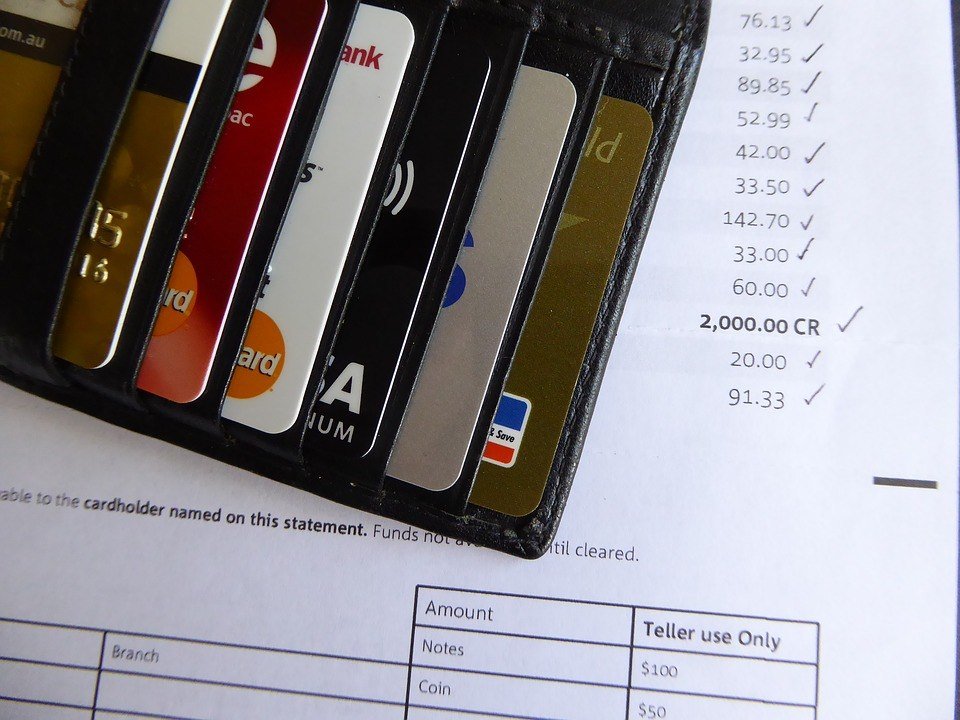Sponsored
7 reasons why your credit scores may have dropped unexpectedly
A credit score is a number estimating the creditworthiness of a person or the likelihood that he’ll be able to pay back any loan to a bank.

Credit scores are important. It is a way for potential lenders to tell if you are a good person to lend to. It is also your ticket to getting different loans and a good score can help you apply for a new credit card.
Even if you’re keen on increasing your credit score, there might be instances where your score will drop without you knowing about it.
In this article, I will go over some reasons why your credit score may have dropped unexpectedly.
1. You’ve applied for too many loans
If you are trying to get a loan and you have applied to a lot of lenders, this could dip your score. That is because lenders might make hard inquiries which could ding your credit score and drop it considerably.
The best thing you can do is limit the number of applications to a minimum; probably up to a maximum of 3. This way, you do not run the risk of lenders making multiple hard inquiries that could potentially dip your scores by a lot.
2. You’ve stopped using your other accounts
You’ve probably been accustomed to using only one or two credit cards at most, but you might have accidentally applied for another account that you might have forgotten.
These unused accounts, if left inactive for quite a while, will be closed without your knowledge. Accounts that are closed this way can affect your credit score—the number of points that will decrease will depend on certain factors.
Get a copy of your credit report and see if there are any accounts that you might have missed or you haven’t used for quite a while.
If there are, the best thing you can do is maintain that account while attaching a small subscription to it to make it active. For example, you could attach your Netflix account to it so it will remain active, but doesn’t use up too much credit.
3. Paying off loans
If you have debts like some loans, paying them off would be a logical choice, right? But, there are certain instances where paying off a loan completely can decrease your scores by a bit.
For example, if you plan on paying off the loan before the due date, you not only incur additional charges, but it can still affect your score.
However, you do not have to worry too much. Paying off loans can decrease your score, but it is just natural. It will decrease initially, but over time, it will increase again. So if you’re planning to have a cash advance or any other type of loan, do not be afraid if the scores dip a little bit.

4. Moving to another location frequently
If you move to different addresses in a span of 1-3 years, it could decrease your score. You see, lenders will be much more confident if you have a more permanent address.
That is because constantly moving from one place to another might give them the impression that you are moving because you want to get away from your debts.
As much as possible, stay in a location for a long time.
5. Missed/Late payments
We live in a busy world and you might have missed some payments. Any missed or late payments can decrease your score; the amount varies depending on the debt that you have.
However, it is best that you give payments even though they are late as it can increase your score. I guess the saying, “better late than never” applies here.
6. Having too many credit cards
You probably have a more than two credit cards. You might have a credit card solely for shopping, a card for travel, a card for entertainment, and so on.
And although you have the means of paying them, having too many cards can potentially have a negative impact on your credit score.
Try to have only a maximum of 2 cards.
7. You made a huge purchase
If you’ve recently made a huge purchase, this might affect your credit score in a negative way. You see, credit card companies make reports on the last day of the billing cycle (typically by the end of the month). The remaining credit will likely be the entry that will reflect on your credit report.
Even though you pay it on time and in full, it can still decrease your score. However, this shouldn’t be a cause for concern, so long as you do not make huge purchases in the next 2 months at least. Your score will gradually increase if you just make diligent payments.
Conclusion
Your Credit score is very important and even though you make wise financial decisions, there are still instances where it can decrease without your knowledge.
Fortunately, there are remedies that you can do to improve your credit score should unexpected decreases happen.

-

 Crowdfunding2 weeks ago
Crowdfunding2 weeks agoEvenFi Launches Run-Off Service to Protect Investors as Crowdfunding Platforms Exit
-

 Africa2 days ago
Africa2 days agoTunisia Holds Interest Rate as Inflation Eases, Debate Grows
-

 Crypto1 week ago
Crypto1 week agoEthereum’s Growing Capacity Puts Pressure on Layer 2 Platforms
-

 Cannabis4 days ago
Cannabis4 days agoCannabis and the Aging Brain: New Research Challenges Old Assumptions


























You must be logged in to post a comment Login